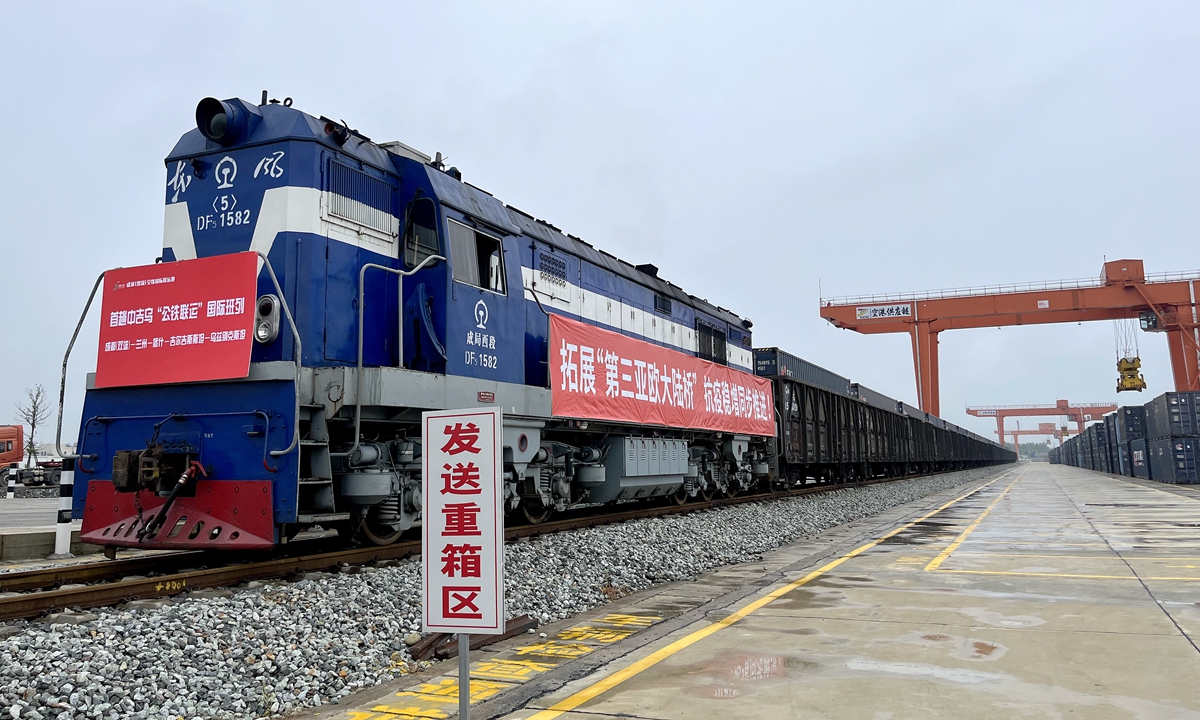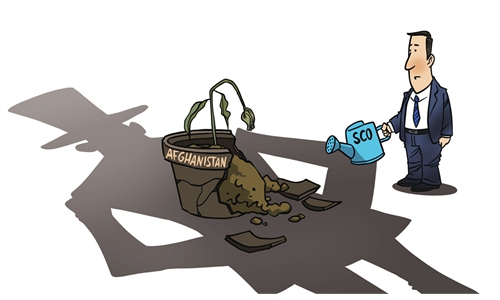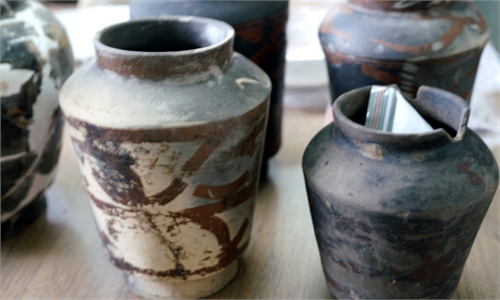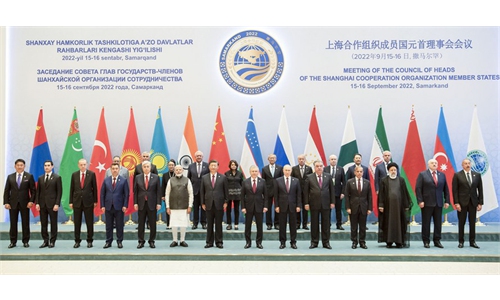IN-DEPTH / IN-DEPTH
China, Uzbekistan see closer bond under BRI

The freight train under the China-Kyrgyzstan-Uzbekistan road-rail intermodal transport system departs from Chengdu, Sichuan Province on September 15, 2022. Photo: IC
On the sidelines of the recently concluded summit of the Shanghai Cooperation Organisation (SCO) in Samarkand, Uzbekistan, China, Kyrgyzstan, and Uzbekistan signed a long-anticipated agreement on the China-Kyrgyzstan-Uzbekistan (CKU) railway construction project on September 14, according to media reports, marking a new groundbreaking moment in the development of the historical railway line after nearly 20 years of negotiations."The signing of a tripartite cooperation agreement on the CKU railway construction project is of historical significance," former Uzbek deputy prime minister and former minister of foreign affairs of Uzbekistan Saidmukhtar Saidkasimov told the Global Times.
Saidkasimov pointed out that the project would also be a new and important opportunity for Uzbekistan, under the China-proposed Belt and Road Initiative (BRI) framework. Saidkasimov noted that the implementation of this project will serve as the basis for expanding the geography of trade and transportation from China through Uzbekistan to Europe and the Gulf states through the Southern Corridor, turning Uzbekistan from a landlocked state into an important communications hub in the region.
The 10th anniversary of the BRI will be marked in 2023. Uzbekistan was among the first countries that expressed support for and took an active part in the BRI cooperation.
According to China's Foreign Ministry, China is the biggest trading partner to and a major investor in Uzbekistan. Two-way trade exceeded $8 billion in 2021, approaching $5 billion in the first half of this year, and is on course to reach the $10 billion-goal set for 2022.
Looking back on the last decade, China and Uzbekistan have achieved fruitful cooperation under the framework of this initiative. Over the last decade, all four lines of the China-Central Asia natural gas pipeline run through Uzbekistan.
Running through the mountains in Central Asia, the Angren-Pap railway line, the longest tunnel in Central Asia, is a milestone project between China and Uzbekistan built under the BRI. With its completion, the railway line has now become part of an international transport corridor that links up China, Central Asia and Europe. More transport potential is being unleashed from the China-Kyrgyzstan-Uzbekistan highway and the China-Kazakhstan-Uzbekistan railway.
The two countries have also been engaged in robust cooperation in a range of sectors including new energy, agriculture, finance, and modern telecommunications, which has brought tremendous benefits to the people of the two countries.
With the advancement of the BRI, the regional economic cycle is becoming increasingly smoother. Until now, the volume of Chinese investments in the economy of Uzbekistan in recent years has exceeded $10 billion, with more than 2,000 Chinese enterprises in Uzbekistan. Cooperation between the two sides in the fields of poverty reduction, science and technology innovation, the digital economy, and green development has brought tangible benefits to the people of both countries, analysts and observers point out.
Saidkasimov expected that after the SCO Samarkand Summit, China and Uzbekistan will implement the consensus of the heads of state of the two countries, strengthening mutual learning, actively explore the joint implementation of global development initiatives, and promote high-quality joint construction of the BRI.



